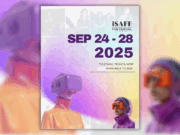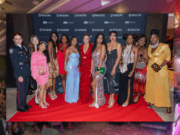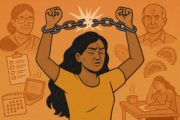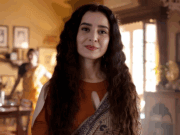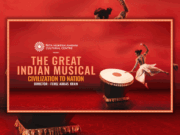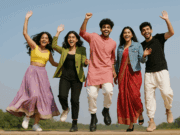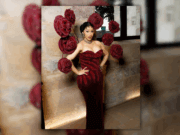
Watch It Now Before It’s Too Late: Lessons On Mindful Medicine From The Documentary “Heal”
Lifestyle Jun 26, 2019
Should we wait until ourselves or a loved one is diagnosed with an illness before learning about wellness? Absolutely not! Read on for a review on the powerful documentary Heal and some of our favourite lessons from the film. Watch It Now Before It’s Too Late: Lessons On Mindful Medicine From The Documentary Heal
What Is Heal About?
In just 1 hour and 46 minutes, Heal provides insight from physicians and spiritual leaders on the importance of the mind-body connection approach to healing (it’s described as a documentary on the power of the mind).
Encouraging a holistic approach to health (backed by research and scientific findings), the benefits of Ayurveda and meditation practices (all originating from Ancient India) are acknowledged as powerful players in the treatment of chronic illnesses (e.g. inflammatory diseases, cancer, anxiety, etc.). The documentary does not discourage the use of Western medicine instead it encourages more use around the world of Eastern medicine as well. It emphasizes the importance of a blended approach to healing that includes the impact our mental, emotional and spiritual states play in our health.
Who Made The Movie?
Released in 2017, it was directed, written and produced by Kelly Noonan Gores’ (alongside producer Adam Schomer) who wanted to bring attention to the large impact emotions, beliefs and thoughts have on overall health and the ability to heal.
To provide viewers with a variety of information sources, Gores documentary includes expert advice alongside personal, case studies. Gores’ documentary features leaders from both the medical and spiritual fields including Deepak Chopra, Joe Dispenza, Marianne Williamson, Anita Moorjani, Michael Beckwith, Kelly Turner and more.
Since its release, it’s achieved #1 Best Seller status on iTunes with international tour featuring some of the cast and a book all set to come out later this year.

What Are Some Of The Key Teachings?
We certainly can’t condense all the knowledge from the documentary in a short, written piece but below are some of the lessons we loved learning from it:
“We have forgotten how intelligent the body is” -Kelly Noonan Gores’.
When we get a small cut, we may tend to it with a band-aid but often we take minimal action and trust the body will heal itself. As pointed out by Marianne Williamson in the documentary, our bodies have a natural intelligence (e.g. the way the embryo knows to connect to the fetus) and it’s important in our health journey, we remember its power; before rushing into prescription drug remedies, we should consider holding space for our immune systems to rise to the occasion to heal.
“The power that made the body heals the body” -Joe Dispenza
Dispenza shares how after a severe accident, he was told by doctors he would never be able to walk again. Putting a hold on he recommended spinal surgery, Dispenza went into practicing visual meditations of his spine reconstructing for about three hours a day for six weeks (until we was able to visualize his healing without breaking concentration). Interested in trying meditation? Check out our piece on meditation here.
“Toxic thoughts produce toxic chemicals in the body” -Michael Beckwith
The impact of harmful self-talk and/or thoughts is profound. With case studies and insight on energy healing practices, the documentary examines how built up trauma and/or negative thinking patterns (e.g. a fear that you will die) impact our health. Looking for something that may help cultivate more positive thinking patterns? Check out our piece on gratitude here.
Stress is a huge cause of disease.
As explained by a few cast members, we have three kinds of stress that can all be interconnected:
- Physical stress: accidents, physical injuries, etc.
- Chemical stress: heavy metals, hormones in foods, blood sugar levels, etc.
- Emotional stress: family tragedies, work, finances, etc.
When we operate in a state of stress, we are creating extra adrenaline and cortisol into our bodies. This mobilizes energy from different parts of our body such as our immune system, gut, brain and putting that energy into our muscles which can lead to problems with our immune, digestion, concentration and more. Looking for tips on how to de-stress? Check out our piece on pranayama breathing tips here.
There is science that demonstrates mental, emotional and spiritual based approaches contribute to healing illness.
According to Kelly Turner whose work is focused on radical remissions, data demonstrates that there’s a way to activate the immune system through mental, emotional and spiritual support. Quick to ensure the message being sent is not that we can all heal tomorrow, with seven of the nine actions contributing to healing in radical remissions being based on the mind-body connection, Turner advocates for the medicinal world to take holistic healing more seriously. Some of the scientifically proven beneficial actions include being open to receiving love and support, taking a deep look at our relationship with food and having a strong sense of our life’s purpose (for the remainder, check out the documentary).
So, Should I Watch This Documentary?
Absolutely!
It can be viewed in chunks of twenty minutes (which may help for processing information) or is equally enjoyable all the way through. Full of wisdom and scientific findings, you may want to have a pen and notebook close by to write down points that resonate the most (or areas you want to do more research on).
Not only do we recommend watching Heal once but we’ve tagged it as favorite in our Netflix account as a powerful piece of work that’s worth a few views (we’re on our fourth viewing and continue to learn something new each time).
With so much insight and inspiration, you can make it a family and/or friend affair by hosting a viewing party (with healthy snacks) and engaging in some open-minded conversation afterwards.
Feel free to visit the site for more information on this film: http://www.healdocumentary.com/
Main Image Photo Credit: www.youtube.com
Rachna Sethi
Author
Rachna (@thesassyspiritual) is a graduate of the Applied Mindfulness Meditation program from the University of Toronto, a certified Educator with two bachelor degrees and a diploma in Art Therapy. She's dedicated to living with a compassionate approach. Committed to helping people integrate Mindfuln...




